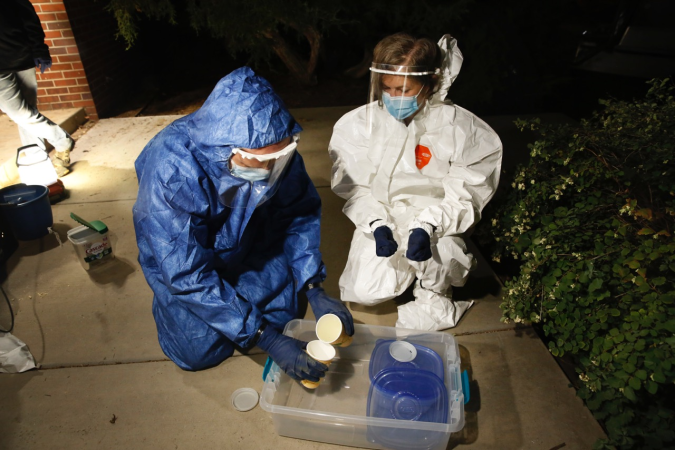
Colorado College and Andrea Bruder, associate professor of mathematics, are featured prominently in an NPR story titled "Colleges Turn To Wastewater Testing In An Effort To Flush Out The Coronavirus" that aired Monday, Oct. 26.
NPR reporter Elissa Nadworny visited Colorado College on Oct. 7 for the story, in which she discusses how wastewater monitoring by colleges and universities provides an early opportunity to catch the virus.
Bruder, who also serves as associate dean of the faculty and chair of CC's COVID Science Advisory Group, is part of a team that twice a week collects wastewater from residence halls at CC in an effort to detect the Coronavirus. Wastewater testing can detect an infection days before respiratory symptoms show up, and even if they never show up at all in the case of asymptomatic individuals.
As Nadworny notes, "In her 11 years on campus, Bruder had no reason to know about the dorm sewage lines - much of her research focused on ladybugs and aphids on yucca plants. But like so many faculty and staff members at U.S. colleges, she's redirected her research to focus on COVID-19, using her expertise to keep the campus safe."
CC added wastewater testing in mid-September to its comprehensive testing program, in an effort to help find COVID-19 cases before people become symptomatic. Researchers have found that spikes in the virus concentration in wastewater can be detected one to two weeks before spikes in the number of cases might occur.
The sampling can be done in areas as specific as a certain wing or level of a single residence hall. The wastewater testing can't tell who is infected with the Coronavirus, but if the virus is detected in the wastewater, residents in that section of the building can be tested quickly, and those who receive positive test results can be isolated, preventing an outbreak.
The CC pilot project includes South, Mathias, and Loomis halls, with additional buildings possibly being added in the future. Because wastewater COVID testing is a novel strategy, CC is partnering with El Paso County Public Health on developing guidance for the interpretation of test results and making methods and guidance available to other schools and organizations in the county.





